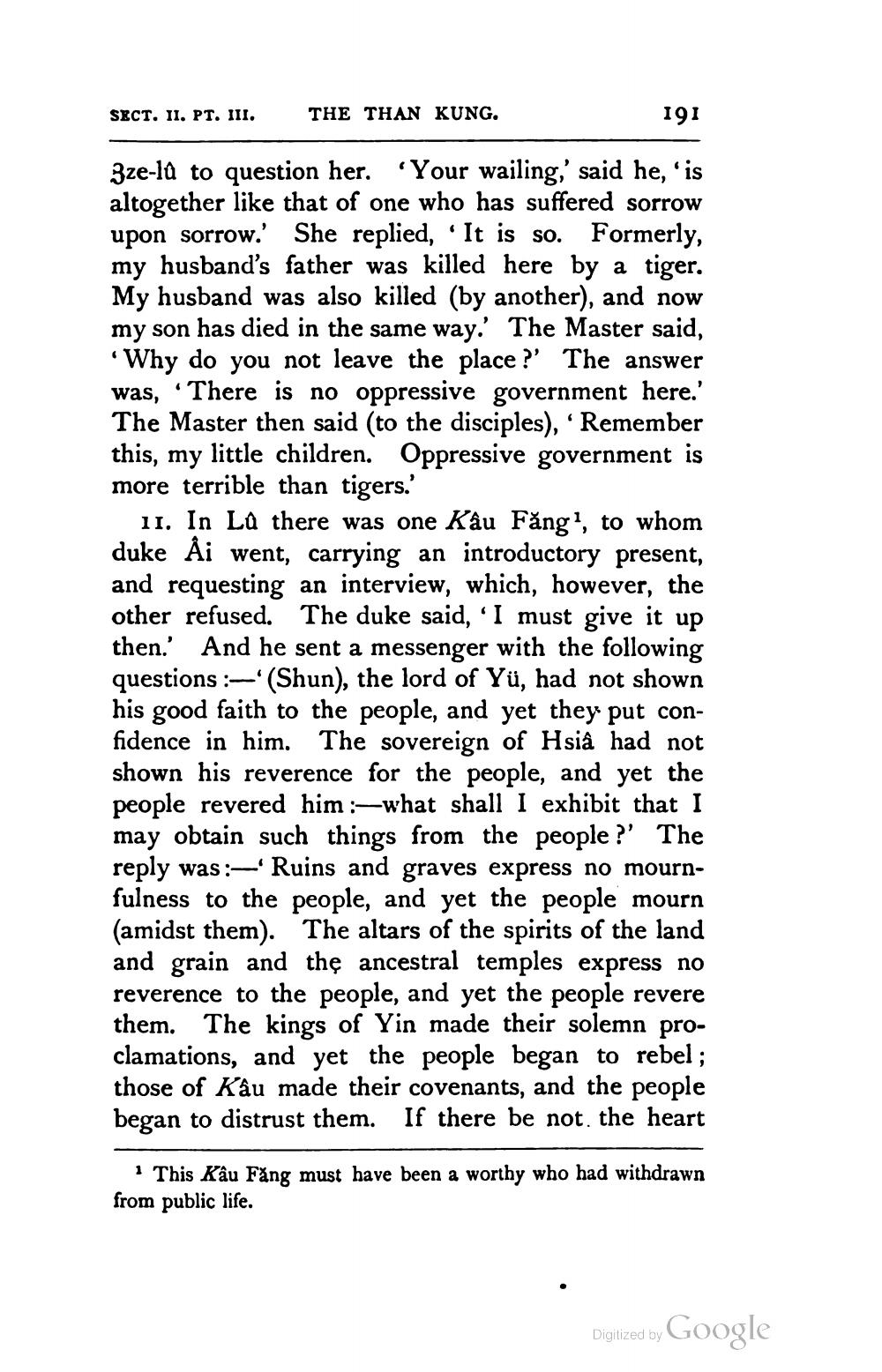________________
SECT. II. PT. III.
THE THAN KUNG.
191
3ze-lû to question her. 'Your wailing,' said he, 'is altogether like that of one who has suffered sorrow upon sorrow.' She replied, 'It is so. Formerly, my husband's father was killed here by a tiger. My husband was also killed (by another), and now my son has died in the same way.' The Master said, 'Why do you not leave the place?' The answer was, 'There is no oppressive government here.' The Master then said (to the disciples), ' Remember this, my little children. Oppressive government is more terrible than tigers.'
11. In Lû there was one Kâu Făng1, to whom duke Âi went, carrying an introductory present, and requesting an interview, which, however, the other refused. The duke said, 'I must give it up then.' And he sent a messenger with the following questions:-(Shun), the lord of Yü, had not shown his good faith to the people, and yet they put confidence in him. The sovereign of Hsiâ had not shown his reverence for the people, and yet the people revered him: what shall I exhibit that I may obtain such things from the people?' The reply was: Ruins and graves express no mournfulness to the people, and yet the people mourn (amidst them). The altars of the spirits of the land and grain and the ancestral temples express no reverence to the people, and yet the people revere them. The kings of Yin made their solemn proclamations, and yet the people began to rebel; those of Kâu made their covenants, and the people began to distrust them. If there be not. the heart
1 This Kâu Făng must have been a worthy who had withdrawn from public life.
Digitized by
Google




